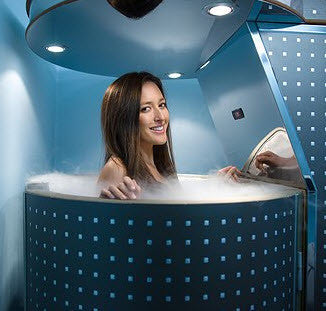
WHAT IS A CHEMICAL PEEL?
A chemical solution is applied to the skin to accelerate the skin’s natural exfoliation in a controlled way so that new skin can grow in its place.
WHAT DOES A PEEL TREAT?
Chemical peels can be done on the face, neck, décolleté or hands and are used to treat 3 key skin indications:
Acne-prone skin
- Improves the look and feel of oily skin
- Improves the appearance of mild scars
Premature skin aging
- Reduces fine lines under the eyes
- Improves the appearance of wrinkles caused by sun damage and premature skin ageing
Pigment spots and Melasma
- Reduces the visibility of age spots
- Diminishes the appearance of dark patches and Melasma
TYPES OF PEELS
There are 2 types of peels:
Superficial peels are the mildest type of chemical peel and can be used on all skin types. These professional treatments usually contain mild acids (AHA and BHA), most particularly Glycolic Acid.
Medium peels penetrate the skin more deeply than superficial peels and cause a visible skin desquamation. TCA is the main peeling agent used in medium peels.
CHOOSING THE RIGHT PEEL
- Your skin specialist will help you choose the most adapted peel treatment based on:
- The skin condition to be treated
- The kind of results you would like to achieve
- The downtime and post-treatment care you are willing to accept
- Your skin type and photo-type
IN-CLINIC PROCEDURE
Superficial Peel
Your skin is cleansed before the peel is applied and left on for a few minutes. You may feel a tingling sensation while the peel is on your skin. Water is then used to neutralise the acid and a moisturising cream is applied. Some redness may appear but will quickly fade. A repeat application of the peel is recommended to achieve optimal results: 4 sessions at 2 week intervals.
Medium Peel
The technique used for a medium peel is similar to that of a superficial peel, but the peel may be left on for a longer period of time or more layers may be applied to the skin. You may feel a mild to intense heating sensation while the peel is on your skin. It is recommended to have at least 2 medium peels to achieve visible and long-lasting results. Depending on the protocol followed, an interval of 2 and up to 8 weeks will be required in between the sessions.
AFTER THE PEEL
Superficial Peel
The redness will disappear a few minutes after the peel, thanks to the application of a post-treatment moisturiser. The application will be repeated as often as necessary over the next 2 to 3 days. Your skin may feel tight but smooth and a superficial desquamation may occur. Most patients return to their normal activities immediately after the peel.
Medium Peel
During the first few days after the peel, there may be some swelling, especially if the area around the eyes is treated. The skin will then flake off gradually and be replaced by new fresh skin. It will take 5 to 7 days to restore itself completely, during which time it should be kept hydrated through moisturising. It is essential to protect the new, sensitive layer of skin with a high protection sunscreen during the whole treatment period and for at least one month after the peel.
HOW TO OPTIMISE PEEL EFFECTIVENESS
It is recommended to combine the in-clinic treatments with an adapted homecare program to:
- Prepare the skin 15 days before the first treatment, although some peels require no pre-treatment
- Restore and protect the skin after each peel
- Stimulate the skin and boost the efficacy of the in-clinic treatment
A typical skincare program includes 6 key actions:
- Purify your skin with an Expert Cleanser
- Prevent the appearance of signs of skin ageing with a Serum
- Restore your skin with a Moisturiser
- Protect your skin from UV rays with a high protection SPF 50
- Stimulate your skin radiance with a Night Cream
- Target your skin imperfections (wrinkles, pigment spots) with a Cream or Serum
CONTRA-INDICATIONS
A chemical peel may not be done if you have:
- Recently used isotretinoin (a drug used to treat acne)
- Had recent facial surgery or facial radiation therapy
- An active herpes infection affecting the area to be treated
- Known allergies to certain medicine
-
If you are pregnant or breast-feeding
At South William Clinic & Spa we work with a number of different cosmeceutical and medical skincare brands including AlumierMD, Dermaceutic, SkinCeuticals, ZO Skin Health and more. Our skin experts will choose the best peel and homecare regimen for you to achieve optimal results. Book an Advanced Skin Consultation today and start your journey to great skin!





